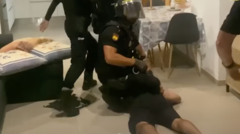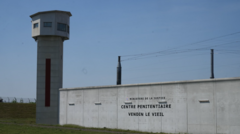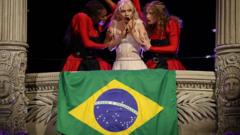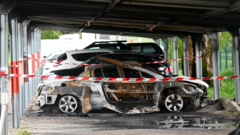Holy symbols adorn drug packages, with gangs asserting divine authority as they delve into religious extremism that threatens Brazil's religious freedoms.
The Dark Theology of Rio's Drug Gangs: God, Crime, and Control
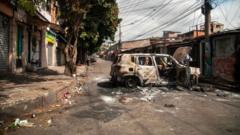
The Dark Theology of Rio's Drug Gangs: God, Crime, and Control
In Rio de Janeiro, gangsters combine their criminal pursuits with evangelical fervor, imposing their beliefs on the communities they terrorize.
In Rio de Janeiro, the intertwining of religion and crime is becoming all too evident as powerful drug gangs impose their beliefs on vulnerable communities. The "Pure Third Command," a notorious criminal organization, boldly brands its drugs with religious emblems, most notably the Star of David, reflecting a distorted interpretation of Christianity linked to the return of Jewish people to Israel. The gang claims territory in the favelas, known collectively as the Israel Complex, under the belief that they are "soldiers of crime" with divine backing—an idea reflected in their violent enforcement of religious practices.
The impact of this violent religious extremism is not lost on former gang members like Pastor Diego Nascimento, who once ruled over drug operations but found redemption through Christianity after hitting rock bottom. Despite his transformation, Nascimento views the actions of the gang as contradictory to true evangelical beliefs, insisting that it is impossible to be both a follower of Jesus Christ and a drug dealer.
As evangelical Christianity continues to rise in Brazil, the influence of gangs on religious expression grows, leading to a concerning suppression of alternative faiths, particularly Afro-Brazilian religions. Communities are reportedly living "under siege," facing violence when practicing beliefs that deviate from those enforced by these gangs. Sociology experts note that this has fostered an environment of religious intolerance, with threats and violence directed at followers of Afro-Brazilian traditions such as Umbanda and Candomblé.
The phenomenon has escalated significantly over the last few years, with gang violence increasingly recognized as a form of “neo-Crusade,” targeting marginalized religions in the name of a warped faith. Academic voices argue that this reflects a broader historical relationship between crime and spirituality in Brazil and stresses the urgent need for protecting constitutional rights to religious freedom. The intersection of narcotics and religious belief stands disproportionately threatening, leaving vulnerable populations caught between a violent landscape and the suppression of their rights—an echo of societal harm that extends far beyond the realm of drug trafficking.
The impact of this violent religious extremism is not lost on former gang members like Pastor Diego Nascimento, who once ruled over drug operations but found redemption through Christianity after hitting rock bottom. Despite his transformation, Nascimento views the actions of the gang as contradictory to true evangelical beliefs, insisting that it is impossible to be both a follower of Jesus Christ and a drug dealer.
As evangelical Christianity continues to rise in Brazil, the influence of gangs on religious expression grows, leading to a concerning suppression of alternative faiths, particularly Afro-Brazilian religions. Communities are reportedly living "under siege," facing violence when practicing beliefs that deviate from those enforced by these gangs. Sociology experts note that this has fostered an environment of religious intolerance, with threats and violence directed at followers of Afro-Brazilian traditions such as Umbanda and Candomblé.
The phenomenon has escalated significantly over the last few years, with gang violence increasingly recognized as a form of “neo-Crusade,” targeting marginalized religions in the name of a warped faith. Academic voices argue that this reflects a broader historical relationship between crime and spirituality in Brazil and stresses the urgent need for protecting constitutional rights to religious freedom. The intersection of narcotics and religious belief stands disproportionately threatening, leaving vulnerable populations caught between a violent landscape and the suppression of their rights—an echo of societal harm that extends far beyond the realm of drug trafficking.







